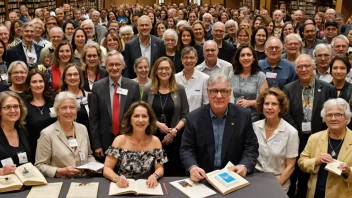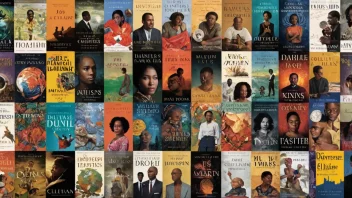Friendship has long been a powerful theme in literature, and science fiction is no exception. In the vast universe of sci-fi narratives, friendships often serve as a core element that explores human emotions, societal structures, and the intricacies of interstellar relations. This article delves into the role of friendship in two iconic science fiction works: Isaac Asimov's 'Foundation' series and Arthur C. Clarke's 'Rendezvous with Rama.' While both narratives explore friendship within the context of science fiction, they do so in markedly different ways, reflecting their unique themes and societal commentaries.
Overview of the Works
Before diving into the comparison, it's essential to understand the basic premise of each work. Asimov's 'Foundation' series is a sweeping epic that explores the rise and fall of civilizations, focusing on the idea of psychohistory, a mathematical sociology that can predict the future. The bonds of friendship in this narrative often revolve around intellectual camaraderie and shared goals.
On the other hand, Clarke's 'Rendezvous with Rama' centers around a mysterious alien spacecraft that enters the solar system. In this story, the focus on friendship is less about individual relationships and more about the collective efforts of humanity in the face of the unknown, highlighting how collaboration can lead to discovery and understanding.
The Nature of Friendship
In 'Foundation,' friendships are characterized by intellectual respect and collaboration. Characters like Hari Seldon and Gaal Dornick demonstrate that true friendship can be rooted in shared ideals and aspirations. Their bond is forged through a common understanding of the importance of psychohistory, leading them to work together toward a greater cause.
In contrast, 'Rendezvous with Rama' emphasizes the collective aspect of friendship. The crew members, while coming from diverse backgrounds, unite in their common mission to investigate the alien ship. Here, friendship is not confined to personal connections; instead, it manifests through teamwork and a shared sense of wonder and curiosity.
Pros and Cons of Friendship in 'Foundation'
Pros
- Intellectual Growth: The friendships in 'Foundation' promote intellectual discourse, leading to significant advancements in their understanding of psychohistory and its implications.
- Strategic Alliances: Friendships often lead to strategic alliances that are crucial for the survival of civilizations, showcasing the pragmatic side of relationships.
- Emotional Depth: Asimov's characters experience emotional depth through their friendships, allowing readers to connect with them on a personal level.
Cons
- Isolation of Characters: The focus on intellectual relationships may create a sense of isolation, as some characters struggle with personal connections outside of their intellectual pursuits.
- Complexity of Goals: The overarching goals may sometimes overshadow the personal relationships, making the friendships feel secondary.
Pros and Cons of Friendship in 'Rendezvous with Rama'
Pros
- Unity in Diversity: The diverse backgrounds of the crew members emphasize the importance of unity and collaboration, showcasing how friendship can transcend personal differences.
- Collective Discovery: The focus on group exploration encourages readers to appreciate the collective efforts in addressing the unknown.
- Innovative Problem Solving: The friendships foster innovative thinking and problem-solving, crucial for the success of their mission.
Cons
- Less Focus on Individual Relationships: The narrative does not delve deeply into individual character relationships, which may result in a lack of emotional connection for some readers.
- Overarching Themes: The collective focus can sometimes dilute the personal stakes involved, making it feel less intimate than Asimov's work.
Differences in Themes
The thematic exploration of friendship in both works illustrates striking differences. 'Foundation' emphasizes the intellectual camaraderie necessary for progress and the survival of civilization, while 'Rendezvous with Rama' celebrates the spirit of exploration and the strength found in diversity. Asimov’s narrative suggests that friendships can be a path to intellectual enlightenment, whereas Clarke’s highlights the necessity of collaboration in confronting the unknown.
Conclusion
Both 'Foundation' and 'Rendezvous with Rama' showcase the multifaceted nature of friendship in science fiction, albeit through different lenses. While Asimov's work emphasizes the intellectual bonds formed through shared aspirations, Clarke’s narrative focuses on the collective unity of humanity in the face of cosmic mystery. Readers who appreciate deep emotional connections and character development may gravitate towards 'Foundation,' while those who value teamwork and exploration may find 'Rendezvous with Rama' more appealing. Ultimately, both works underscore that friendship, in its many forms, is an essential component of the human experience, especially within the vast realms of science fiction.






